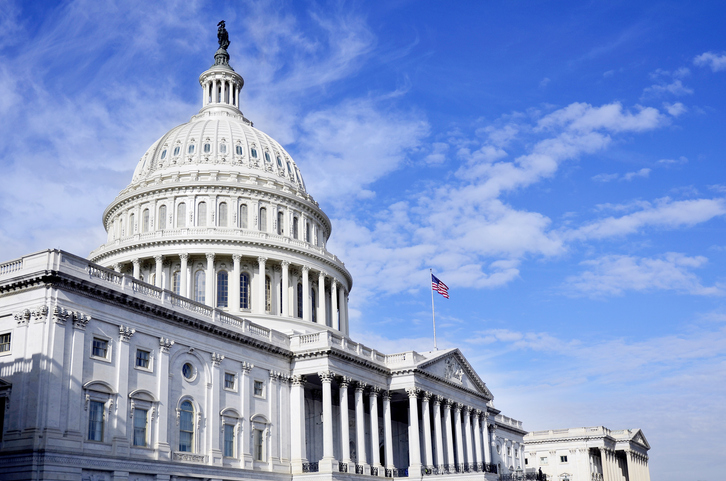Today, the U.S. Department of the Treasury’s Office of Foreign Assets Control (OFAC) prohibited United States persons from engaging in transactions with the Central Bank of the Russian Federation, the National Wealth Fund of the Russian Federation, and the Ministry of Finance of the Russian Federation. This action effectively immobilizes any assets of the Central Bank of the Russian Federation held in the United States or by U.S. persons, wherever located.
These restrictions are in addition to the previous enacted financial sanctions placed on Russia and are listed below. U.S. equipment manufacturers conducting business in Russia are strongly advised to review the new financial sanctions. While these sanctions do not impose a full embargo on trade with Russia, they do present significant challenges when making or receiving payments for business transactions. If your product is already subjected to export controls, or has end customers in the military, please contact the Bureau of industry and Security (BIS) directly for the latest update on U.S. export controls.
Financial Sanctions
The United States has imposed full blocking sanctions against VTB, Otkritie, Sovcombank and Novikombank. Sberbank, Russia’s largest bank, has been targeted with correspondent and payable-through sanctions, thus preventing it from processing U.S. dollar payments through the U.S. financial system. These restrictions will also impact Sberbank’s 25 foreign financial institution subsidiaries. The United States has also expanded the list of Russian companies (11 state-owned enterprises and two large privately-owned entities) subject to “Sectoral Sanctions Identifications or SSI” sanctions – which are limitations on dealings by U.S. persons in their debt (of no longer than 14 days maturity) and equity. The United States added asset freezes and visa bans on the children of leading Russian government officials and executives at Sberbank and VTB
The United States has placed blocking sanctions on four major Russian banks, including VTB Bank, the second largest bank in Russia by assets holding approximately 20 percent of Russia’s banking assets; Otkritie and 12 of its subsidiaries in Russia and Cyprus; Sovcombank, Russia’s ninth largest bank and the third largest privately owned bank; and Novikombank which the U.S. government suggests is the “core financial institution” for the Russian state-owned conglomerate Rostec. These sanctions have immediate effect.
The action taken against Sberbank would require U.S. institutions to close any Sberbank correspondent or payable-through account within 30 days and prohibit future transactions with Sberbank or its foreign financial institution subsidiaries, unless exempt or authorized by OFAC. The measure, which applies to U.S. dollar transactions and both U.S. entities (including their foreign branches) as well as the branches, offices, and agencies of foreign financial institutions that are located in the United States, took effect on March 26, 2022.
Thirteen major Russian companies, some already subject to Sectoral Sanctions Identifications, will now be subject to a new “Russia-related Entities Directive” that prohibits new debt of longer than 14 days and any new equity. Debt or equity issued prior to the effective date of March 26, 2022, are not subject to the Directive. The Directive specifies that other entities may be added to this in the future.
The entities subjected are
- Sberbank
- Gazprombank
- Russian Agricultural Bank
- Gazprom
- Gazprom Neft
- Transneft
- Rostelecom (not previously subject to SSI sanctions)
- RusHydro (not previously subject to SSI sanctions)
- Alrosa (not previously subject to SSI sanctions)
- Sovcomflot (not previously subject to SSI sanctions)
- Russian Railways (not previously subject to SSI sanctions)
- Alfa Bank (Russia’s largest private bank)
- Credit Bank of Moscow
The Administration also imposed asset blocking and visa denial sanctions on the following Russian individuals: Sergei Sergeevich Ivanov, the CEO of Russia’s state-owned diamond mining company Alrosa; his father Sergei Borisovich Ivanov (redesignated today); Andrey Patrushev, who works in the energy sector and who is the son of one of the head of Russia’s security services, Nikolai Platonovich Patrushev (also redesignated) and Ivan Igorevich Sechin, who is said to work at Russia’s oil giant, Rosneft, and is the son of Igor Ivanovich Sechin, a close Putin ally and Chairman of Rosneft (who was redesignated as well). In addition, the Administration designated Alexander Vedyakhin, First Deputy Chairman at Sberbank; Andrey Puchkov and Yuriy Soloviev, two VTB Bank executives.
Given the fluidity of the situation and the ongoing imposition of new sanctions on Russia, AEM will provide member companies with additional updates in the coming days. For questions, please contact AEM’s Senior Advisor of Global Public Policy Alex Russ at aruss@aem.org or (202) 898-9006.
Subscribe to the AEM Industry Advisor for more information on issues impacting the equipment manufacturing industry.





